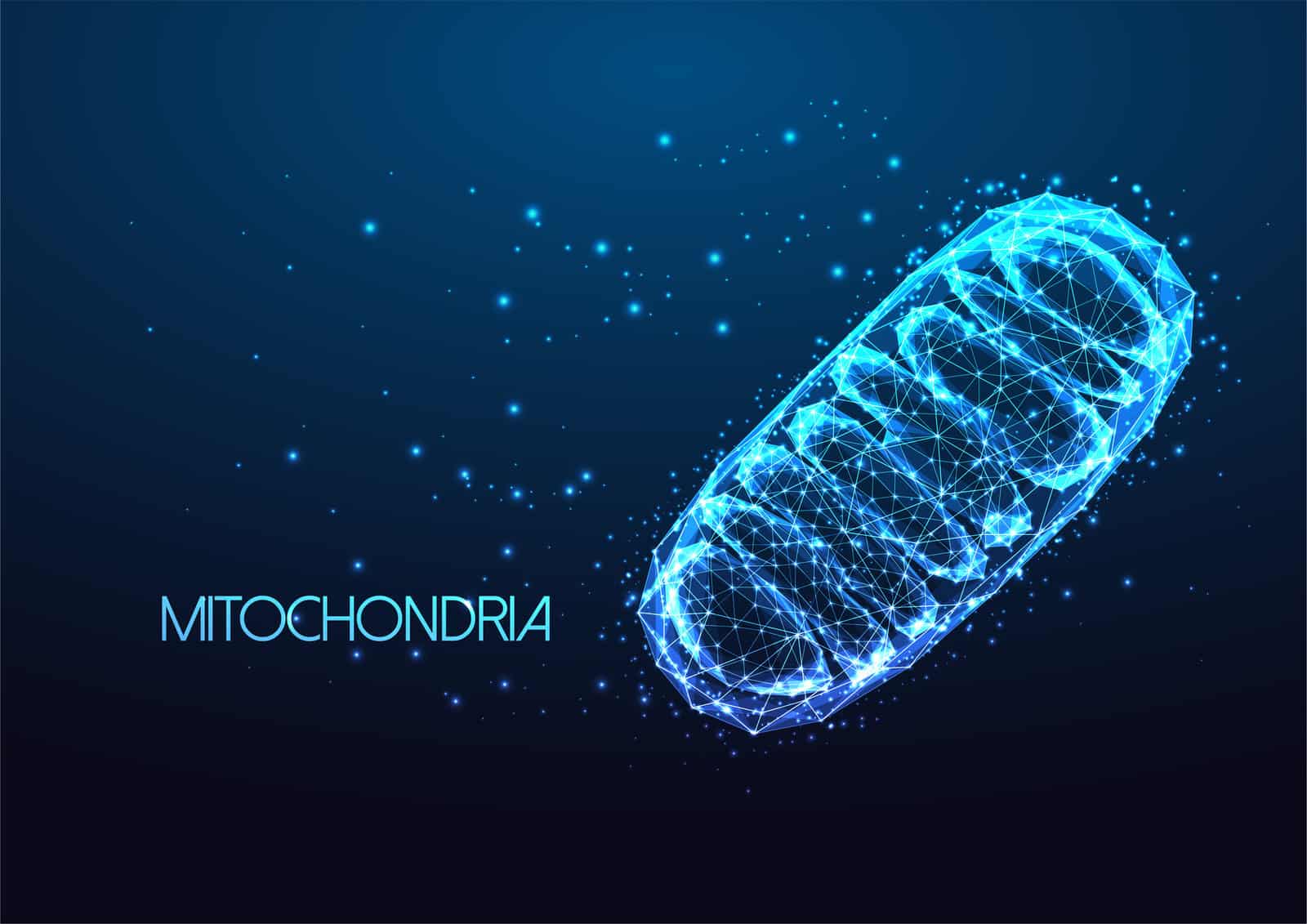Mitochondria

Mitochondria are organelles in the cells of most eukaryotic organisms. They range in size from 0.5 to 1.0 micrometers and are typically spherical or ovoid.
Mitochondria are sometimes described as "powerhouses" or "energy factories" because they generate most of the cell's supply of adenosine triphosphate (ATP), used as a source of chemical energy.
In addition to supplying cellular energy, mitochondria are involved in other tasks, such as signaling, cellular differentiation, and cell death, as well as maintaining control of the cell cycle and cell growth.
Additionally, mitochondria are involved in calcium homeostasis, and they can release calcium into the cytosol in order to help maintain a healthy concentration gradient.
Finally, mitochondria are also thought to play a role in cell death. This is known as apoptosis, and it is a process that is important for the development and maintenance of healthy tissue.
Mitochondria are fascinating organelles that play a vital role in the function of all eukaryotic cells. Without mitochondria, our cells would not be able to produce the energy that they need to function properly.
Mitochondria are involved in a number of important cellular processes, making them truly essential for the health and well-being of our cells.
Products related to Mitochondria
- Supplement
Quicksilver Scientific The ONE Mitochondrial Optimizer
Are you ready to optimize your mitochondrial health and boost your energy levels? The Quicksilver Scientific ONE Mitochondrial Optimizer is a cutting-edge supplement designed to support the health...
Books discussing Mitochondria
All Mitochondria Books
Head Strong
For the previous ten years, Silicon Valley entrepreneur Dave Asprey has collaborated with renowned doctors and scientists to discover the newest,...

Eat for Energy
A comprehensive study of the cellular origins of chronic fatigue, burnout, and brain fog, with a guide for restoring cognitive function, alertness,...

Lifespan
A groundbreaking book from a well-known Harvard Medical School scientist that has been deemed one of the Time's most influential people. Aging is...

Limitless Energy
If you're interested in having an endless supply of energy, consider detoxing your body. There are many benefits to ridding yourself of toxic metals...

Fat for Fuel
For over 100 years, scientists have believed that cancer is a hereditary disease passed down through families. But maybe cancer isn't genetic after...

Transdermal Magnesium Therapy
Magnesium has often been hailed as a miracle nutrient, and for good reason! Its potential benefits are numerous, ranging from saving you from pain...

The BioMat Book
This book is about the incredible BioMat and how it helps with cancer treatment, gives pain and stress relief, and now it warms the body increasing...

New Paradigms in Diabetic Care
If you are struggling with diabetes, know someone who is, or work in the health industry with diabetic patients, this book will provide new...

Melatonin
With Dr. John Lieurance, a Chiropractic Neurologist and Naturopathic Physician at the helm, this book is immensely comprehensive in its discussion of...

Thiamine Deficiency Disease, Dysautonomia, and High Calorie Malnutrition
Thiamine Deficiency Disease, Dysautonomia, and High-Calorie Malnutrition dive into thiamine deficiency and its effects on the brainstem's functions...

Textbook of Clinical Nutrition and Functional Medicine, vol. 1
After aggregating thousands of research papers, Dr. Vasquez's work is a product of his numerous years in clinical practice and teaching...

Brain Inflammation in Chronic Pain, Migraine and Fibromyalgia
Have you been plagued by mysterious and chronic pain ailments, such as migraine or fibromyalgia? This book will unravel the secrets of these...
Experts discussing Mitochondria
All Mitochondria ExpertsDave Asprey
The "godfather of biohacking", creator of Bulletproof Coffee, Bulletproof 360, author, and host of The Human Upgrade podcast.Ari Whitten, Ph.D. (Cand), CES, PES
Health expert, #1 best-selling author, and the creator of the Energy Blueprint system for overcoming fatigue and increasing energy levels.Alex Leaf, M.S.
With a degree in nutrition, has been writing about nutrition, health, and fitness for over a decade.Dr. David Sinclair, Ph.D.
A renowned authority on the genetics of aging and longevity, author, and host of Lifespan with Dr. David Sinclair podcast.Matthew D. LaPlante
An assistant professor of journalism at Utah State University, journalist, radio program host, blogger, and co-author of several books.Wendy Myers
Founder of MyersDetox.com, a detox expert, best-selling author, functional diagnostic nutritionist, NES Bioenergetic Practitioner, and The Myers Detox podcast host.Dr. Joseph Mercola
Osteopathic physician, best-selling author, and founder of the #1 natural health site.Dr. Mark Sircus, Ac, OMD, DM
An acupuncturist, doctor of oriental and pastoral and natural allopathic medicine, as well as a writer and author of multiple medical and health-related books.Dr. John Lieurance, ND, DC
A chiropractic neurologist and naturopath who has been in private practice for 25 years, author, and Chief Scientific Officer of MitoZen, and Director of the Functional Cranial Release Research Institute (FCRRI).Dr. Chandler Marrs, MS, MA, Ph.D.
Researcher, a writer in medicine and health, co-Author of Thiamine Deficiency Disease, Dysautonomia, and High-Calorie Malnutrition, and founder of CRM Health & Fitness.Dr. Derrick Lonsdale, MD, FACN, CNS
A pediatrician and researcher into the benefits of natural nutrition-based treatments to improve health.Dr. Alex Vasquez, DC, ND, DO, FACN
A fellow of the American College of Nutrition (FACN), in addition to being Board Certified by both the American Association of Naturopathic Physicians and the American Academy of Osteopathy.